More than ever, professional athletes are branching out from the sports world into other career fields. As a result, today’s professional athletes need to be able to market themselves beyond the playing field. To that end, many athletes now go beyond drafting a resume and instead hire professional resume writers and consultants. Resume samples for athletes are designed to highlight all your greatest strengths as an applicant. For example, suppose you’re thinking about making a career change and want to work in another field as a former athlete. In that case, these athlete resume examples will help you see what professional resume writers can bring to your application materials. There are two types of resumes for athletes: The first is if you’re looking for a job as a professional athlete; the second is if you want to take advantage of your fame from working as an athlete and transition into another career path while also capitalizing on your current notoriety. Anyone who has achieved something notable can use their achievements as evidence of their character and competence to land their dream job or internship with one of their favorite companies.
Sports Resume Example

Download This Sports Resume as PDF
Sports Journalist Resume Example
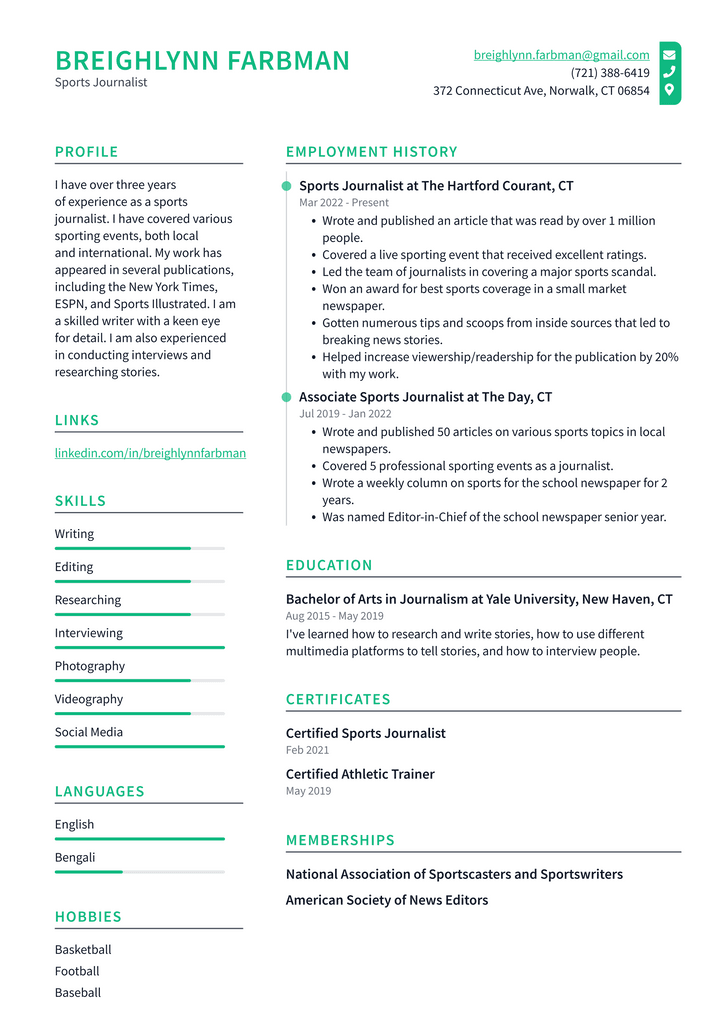
Download This Sports Journalist Resume as PDF
Sports Agent Resume Example
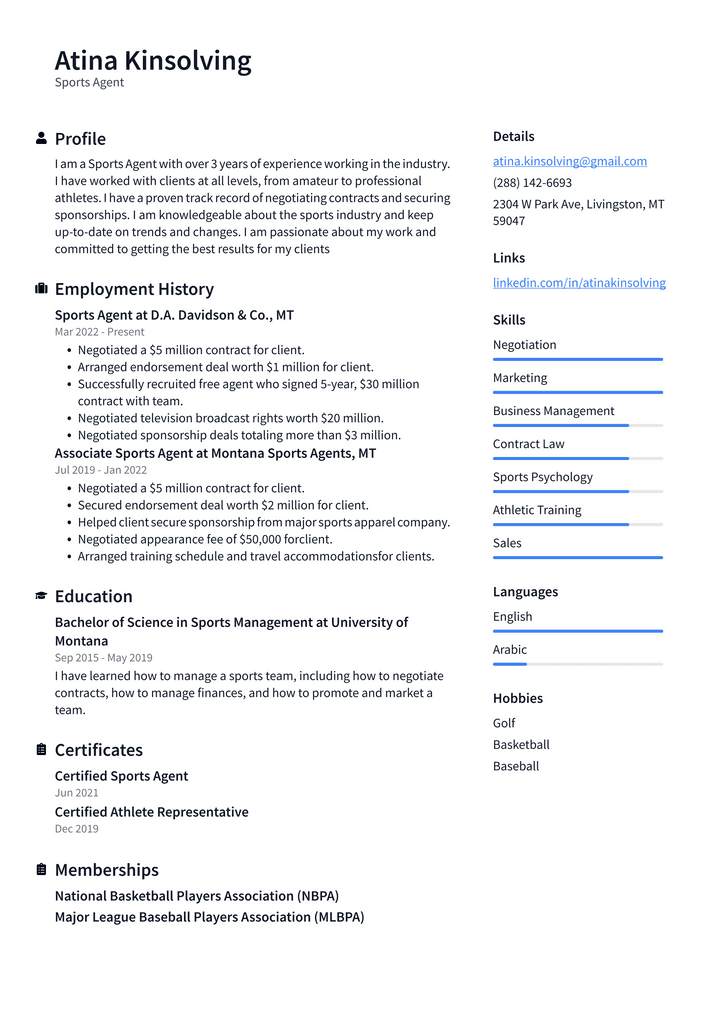
Download This Sports Agent Resume as PDF
Sports Photographer Resume Example
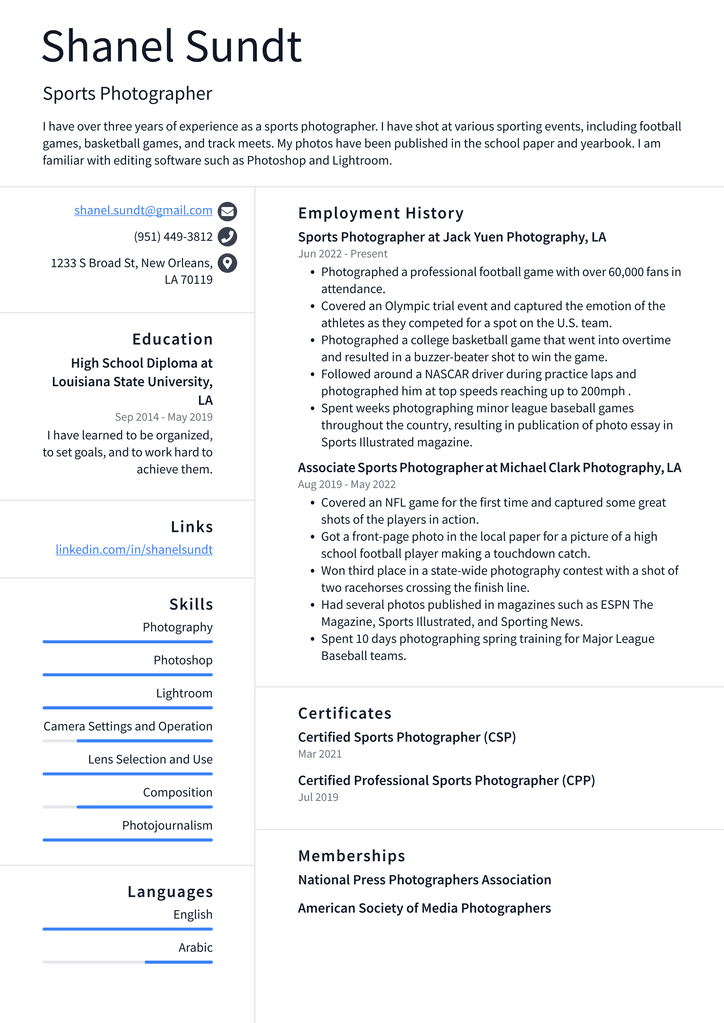
Download This Sports Photographer Resume as PDF
Sports Broadcaster Resume Example
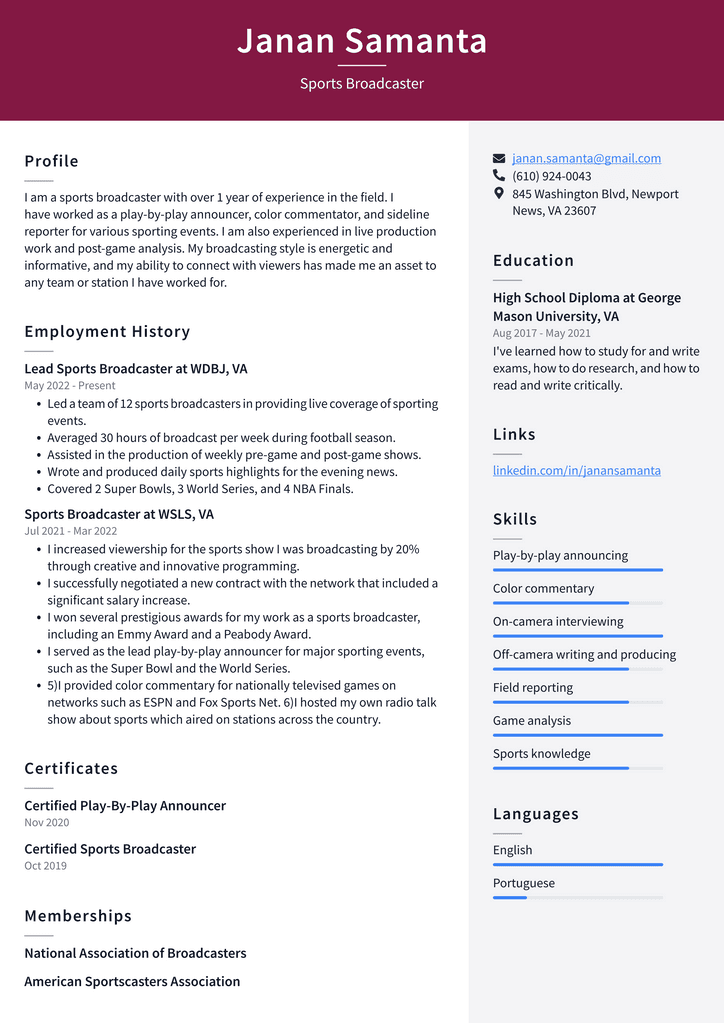
Download This Sports Broadcaster Resume as PDF
Sports Psychologist Resume Example
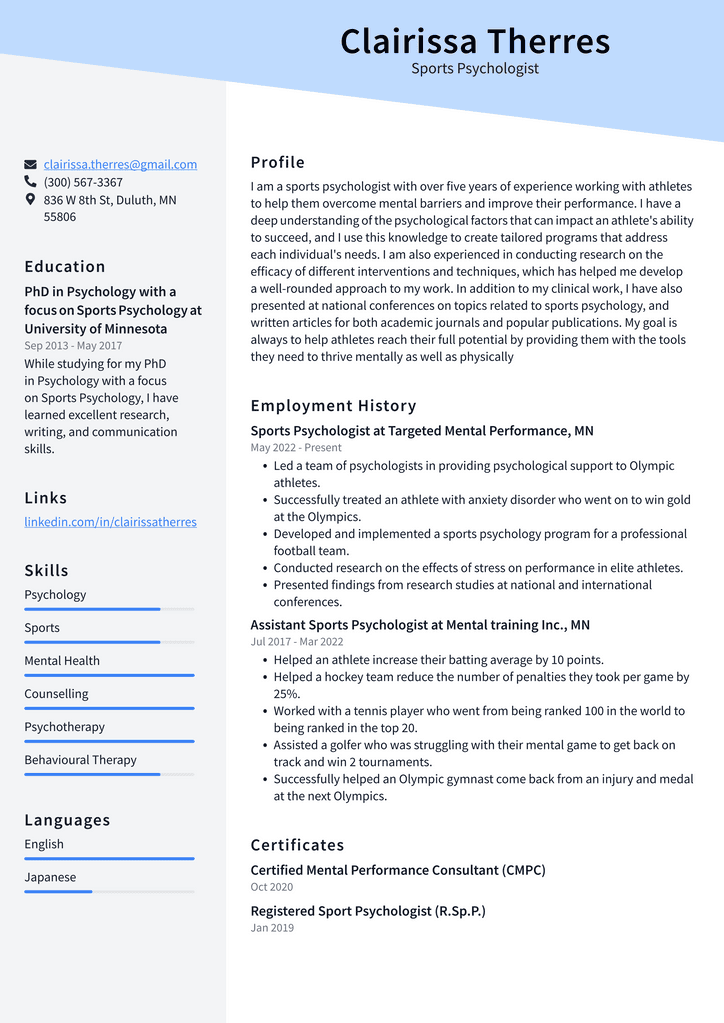
Download This Sports Psychologist Resume as PDF
Sports Therapist Resume Example
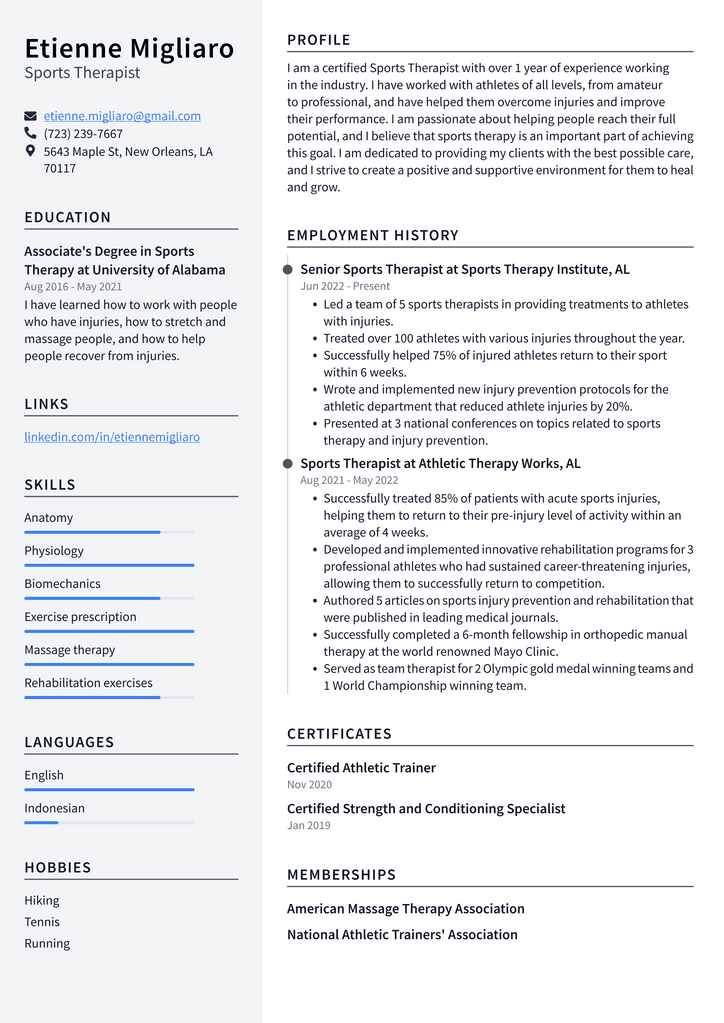
Download This Sports Therapist Resume as PDF
What Is a Good Resume for an Athlete?
A good athlete’s resume should be targeted specifically toward the job you’re trying to get or the company you’re trying to impress. If a hiring manager is reading your resume, they’ll likely be skimming it, so you need to ensure that your resume is written in a way that will get their attention. When making your resume, you must list your achievements and awards in a way that is easy to read and digest. When reading a summary, a hiring manager looks for evidence of your skills, knowledge, and abilities, so you’ll want to front-load your resume with these three things. Your resume should also be easy to read. Hiring managers won’t bother reading the whole thing if it’s too long or uses confusing language. If your summary is full of jargon and industry-specific terms, it will also not get read because hiring managers don’t have the time or patience to figure out what you’re saying.
How to Write a Resume as an Athlete
When making your athlete’s resume, you’ll want to start with your cover letter. In your cover letter, you can briefly summarize your athletic career and highlight the skills and knowledge you used to win awards and achieve milestones. Once you have your cover letter, you can move on to the rest of your athlete’s resume. Your resume should include a few different sections, but it’s important to note that not all hiring managers expect the same areas on a resume. Generally, an outline for athletes should have a career summary, a skills and abilities section, an education section, and a job experience section.
What Goes Into an Effective Athlete’s Resume?
When creating your athlete’s resume, you’ll want to make sure that you’re highlighting your most notable achievements. In general, when writing your resume, you’ll want to keep your resume to one page. Your athletic resume should also contain a career summary. The career summary is your first chance to get a hiring manager’s attention, so your summary must highlight your experience, skills, and achievements. In your skills and abilities section, you’ll want to include all of the skills you gained from your athletic career, as well as the soft skills you learned from being in front of a camera or on stage.
Tips and Tricks to Writing an Athlete’s Resume
– Use action verbs: Using action verbs will help you to highlight the skills you acquired from your athletic career. For example, instead of writing “Managed social media accounts,” use “Curated and managed social media accounts with a following of over 15,000 users.” – Include quantifiable achievements: Quantifiable achievements are easy to measure and put a number on. You can also put them on your resume. Quantifiable achievements can include awards, medals, and recognition you received during your athletic career. – Keep your resume to one page: Don’t try to stuff everything you’ve done into one page. Instead, keep your resume to one page and use the rest of the page to include a list of references. – Keep your resume easy to read: Don’t try to sound too fancy in your resume. Your resume should be easy to read and understand without sounding like a novel.
Conclusion
Athletes are often accustomed to being in the spotlight and highly visible, so they often excel under pressure. This can be very helpful in a variety of different fields and industries. However, athletes are also very goal-oriented, and many have set career goals beyond the playing field. Athlete resume examples can show you the best way to showcase your achievements and abilities when trying to make a career change. Whether you want to transition into another field or capitalize on your current notoriety, these examples will show you how to make the most of your athletic career and put your best foot forward on paper.